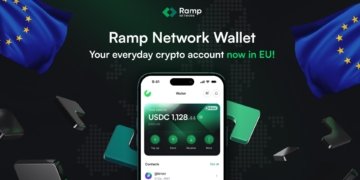
Navigating Identity Coins and Tokens in the Crypto Landscape
As the cryptocurrency industry evolves, a unique sector is gaining traction: identity coins and tokens. Centered around the revolutionary concept of decentralized identity management, these digital assets aim to address issues such as security, privacy, and the ownership of personal data in a digital-first world. In this article, we’ll explore what identity coins and tokens are, their benefits, and the challenges they face.
Understanding Identity Coins and Tokens
Identity coins and tokens are digital assets designed to facilitate secure and private online identity verification and management. In conventional systems, personal information is often stored on centralized servers, leaving it vulnerable to breaches and misuse.
However, identity tokens leverage blockchain technology to create a self-sovereign identity, where individuals have control over their personal data. This revolutionary approach allows users to decide how and when their information is shared, without relying on a third party.
Key Features of Identity Tokens
- Decentralization: Eliminates the need for centralized authorities to store and manage personal information.
- Enhanced Security: Protects personal data through encryption and secure blockchain protocols.
- User Control: Empowers individuals to control who accesses their personal information.
- Privacy: Minimizes the amount of personal data shared during transactions.
The Growing Importance of Digital Identity
In today’s digital landscape, online identity verification is crucial across various sectors, from finance to healthcare, to social media. Traditional identity verification processes are often cumbersome, time-consuming, and fraught with security risks. Identity tokens streamline these processes by providing a more efficient, secure, and user-friendly solution.
Enhancing Security
Identity tokens enhance security by utilizing the immutable nature of blockchain technology. Once data is recorded on a blockchain, it is nearly impossible to alter, making it an ideal platform for secure identity verification. This diminishes the risk of identity theft and fraud, which are prevalent in conventional systems.
Empowering Users
One of the standout benefits of identity tokens is the empowerment of users with control over their personal data. Rather than relying on third-party services, individuals can choose when and how to share their identity with service providers. This builds trust between users and service providers by ensuring that privacy is respected.
Challenges Facing Identity Tokens
Despite their potential, identity coins and tokens must overcome several hurdles to achieve widespread adoption. Here are some of the key challenges:
Regulatory Landscape
- Regulations surrounding digital identity and data privacy vary widely across jurisdictions, creating a complex legal environment for identity token projects.
- Adapting to these regulations is crucial but challenging, as it requires ongoing updates and adjustments to comply with evolving legal standards.
Interoperability
- The success of identity tokens depends on their integration with existing systems and protocols.
- Without interoperability, the adoption of identity tokens could be hindered as widespread functionality might not be achievable.
User Adoption
For identity tokens to truly revolutionize digital identity management, they must gain acceptance among both users and service providers. Education and awareness are key in achieving this goal, as many potential users are unfamiliar with blockchain and decentralized identity concepts.
Prominent Projects in the Identity Token Space
Several groundbreaking projects have emerged in the identity token space, each with unique attributes and goals. Some notable examples include:
Civic (CVC)
- Civic provides a secure platform for identity verification, allowing users to store and share personal data with service providers safely.
- Users are rewarded with CVC tokens for participating in the ecosystem, encouraging engagement and growth.
Sovrin
- Sovrin is an open-source, ledger-based platform for self-sovereign identity management built on a foundation of trust and transparency.
- It aims to make identity management secure, efficient, and easily accessible for everyone.
SelfKey (KEY)
- SelfKey is a blockchain-based identity management system that gives individuals full control over their digital identity.
- SelfKey’s marketplace allows users to access a variety of services with the control and consent over their personal data.
The Future of Identity Coins and Tokens
The potential of identity coins and tokens to transform digital identity management is immense. As blockchain technology continues to mature, the adoption of identity tokens could grow significantly. Key drivers of this growth include:
- The increasing need for secure and private online identity solutions.
- The evolving regulatory landscape that emphasizes data privacy and protection.
- Rising awareness of the benefits of self-sovereign identity management.
In conclusion, while there are challenges to address, the future of identity coins and tokens appears promising. By empowering individuals with control over their personal data, these digital assets hold the potential to redefine how we manage identity, fostering a more secure and trust-driven digital world.
“`














